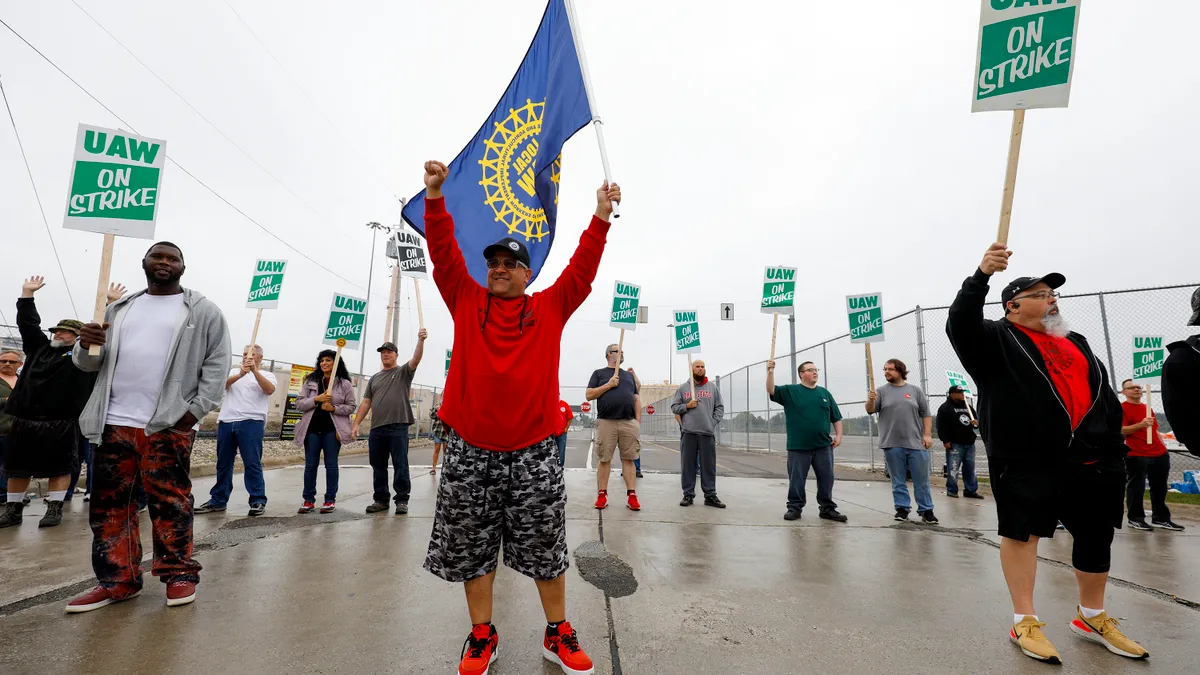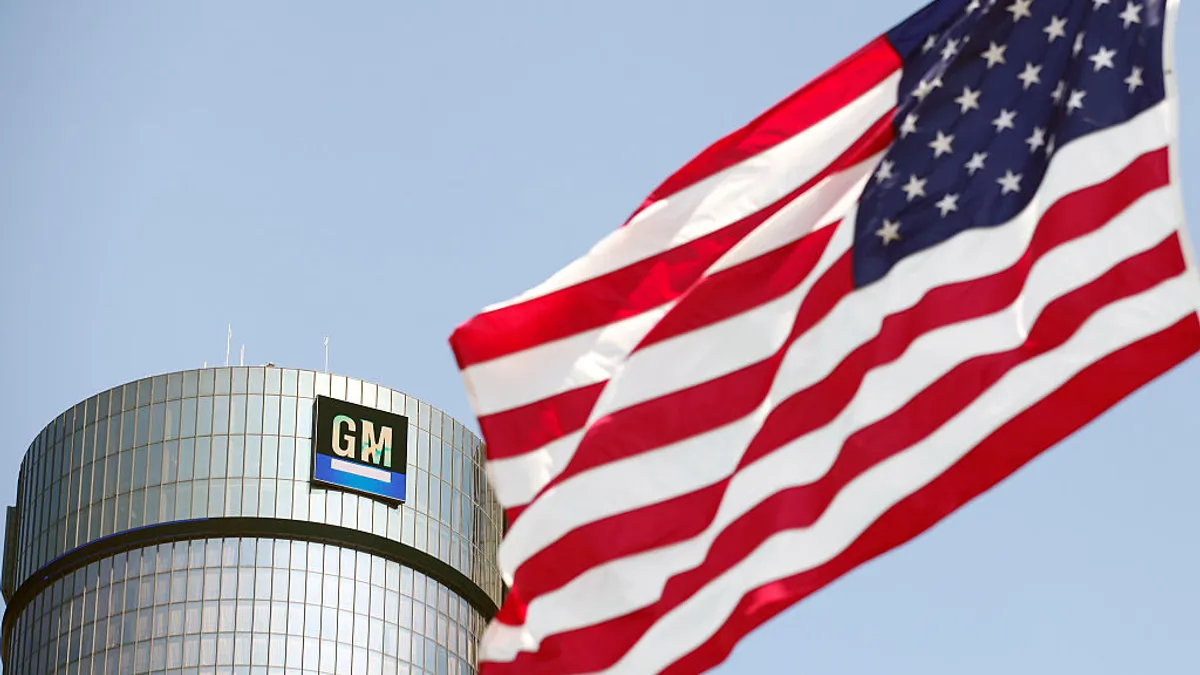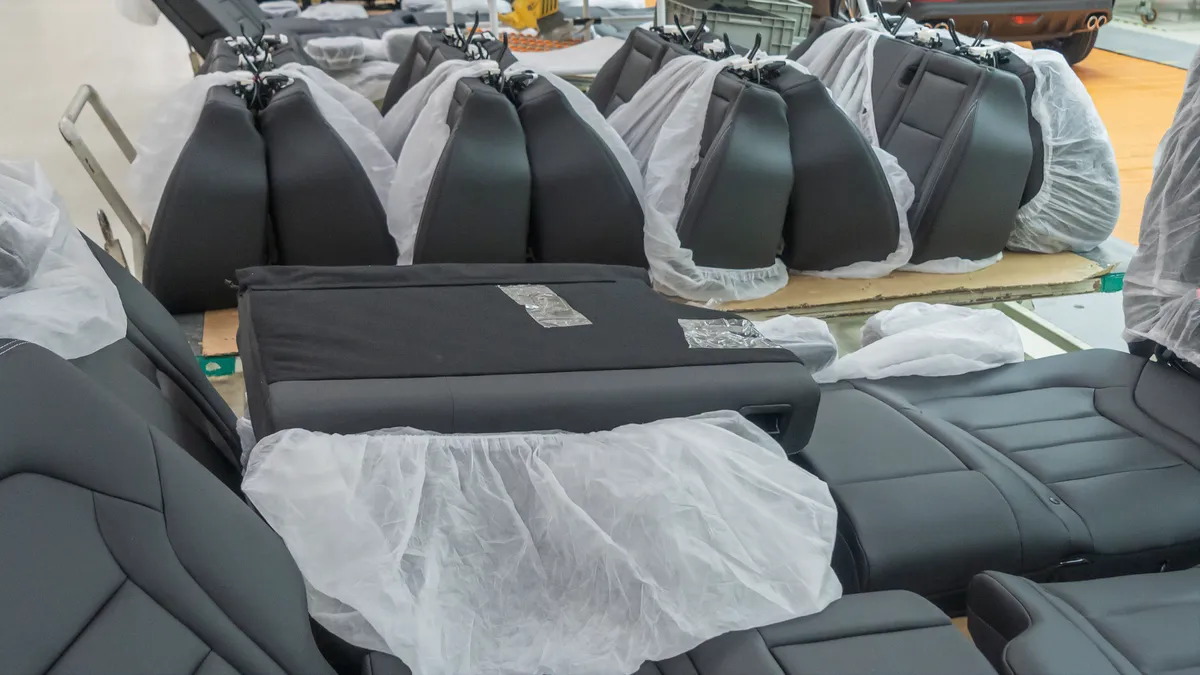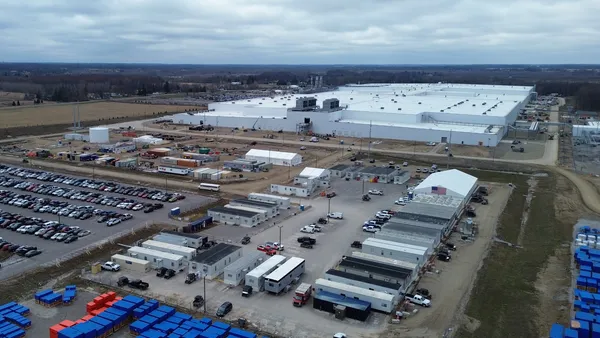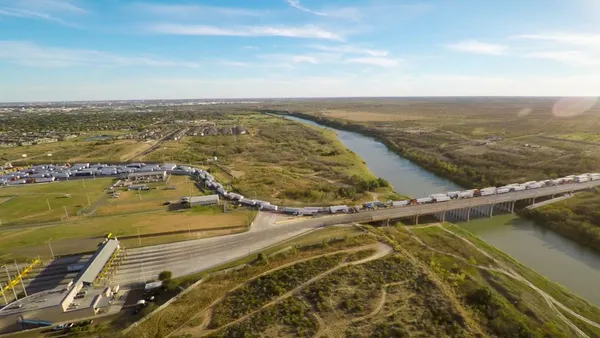Dive Brief:
-
Members of the International Union, United Automobile, Aerospace and Agricultural Implement Workers of America are preparing for labor strikes against Detroit’s “Big Three” automakers in September, UAW President Shawn Fain said during a Facebook Live event for members on Friday.
-
Autoworkers want Ford Motor Co., General Motors and Stellantis to agree to cost-of-living adjustments, certain pension benefits, general pay raises, ending the tiered pay system and job guarantees, among other demands.
-
More than 140,000 workers could strike this fall when the union’s contracts with the automakers expire on Sept. 14.
Dive Insight:
UAW members made several labor concessions following the 2008 financial crisis and subsequent bankruptcies of GM and Chrysler — now part of Stellantis. But the Big Three automakers made almost $250 billion in profits from 2013 to 2022, according to the UAW. Now, autoworkers want a larger slice of the pie.
“We took cuts in hard times to save these companies,” Fain said. In a video at the event's start, he said it was “time to pay up.”
The labor union noted that the Big Three CEOs each earned well over $20 million in 2022, drawing the ire of its leadership.
“The Big Three executives have lavished themselves with fat salaries, while autoworkers continue to live paycheck to paycheck,” UAW Vice President Rich Boyer said in a video during the Facebook Live event.
Fain doubled down on his campaign promise to take a more confrontational stance with automakers.
“We are in the process of changing the culture of this union from a reactionary, defensive union to an aggressive and offensive-minded union,” he said. “If the Big Three don’t do what’s right by our members, then we’re going to do what we have to do, and we’re going to do it together.”
In addition, the newly minted UAW leader criticized recent plant closures and idling, including the closure and eventual sale of GM’s Lordstown, Ohio, factory in 2019. He also said the labor union would ensure that its members would benefit from the automotive industry’s transition to electric vehicles, which usually require fewer workers to build.
“We will not stand by and allow workers to be left behind,” he said. “If the government’s gonna funnel billions of dollars in taxpayer money to these companies, our members must be compensated with top wages and benefits.”



